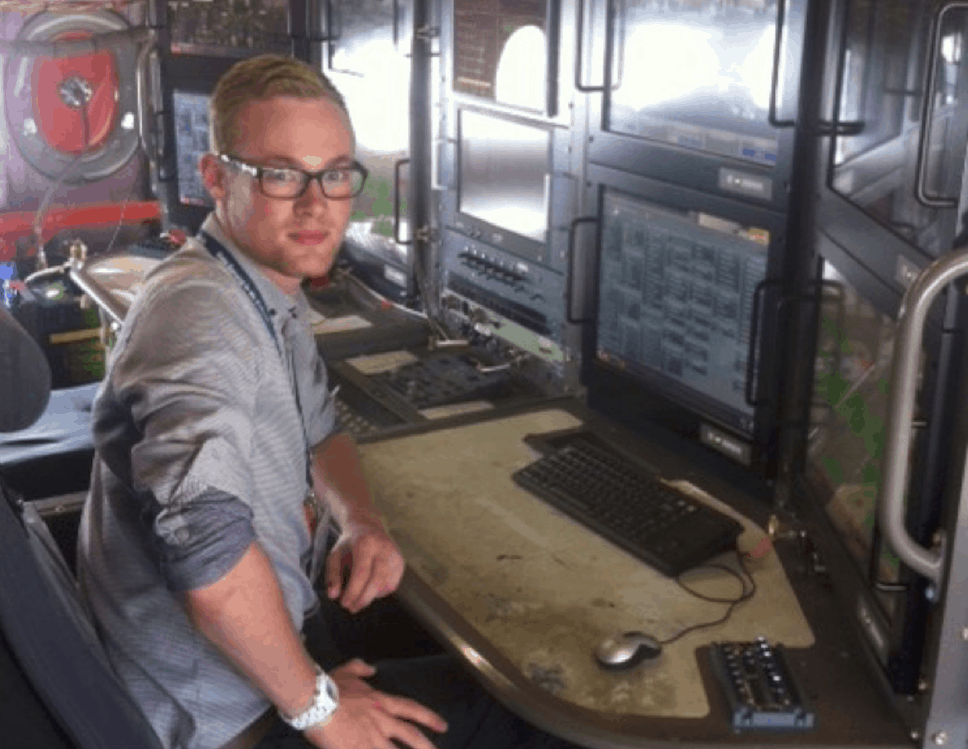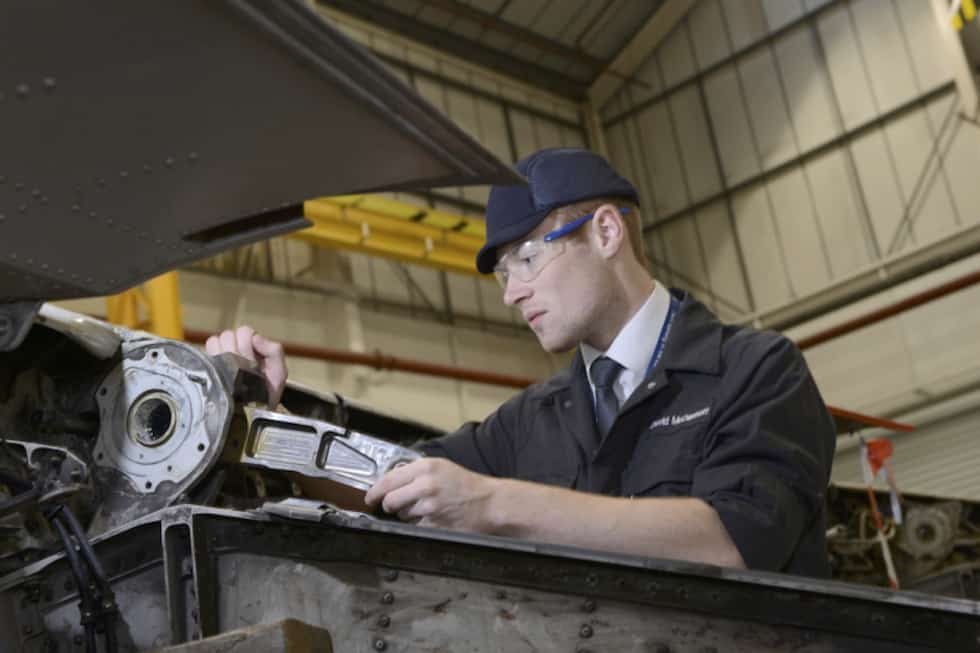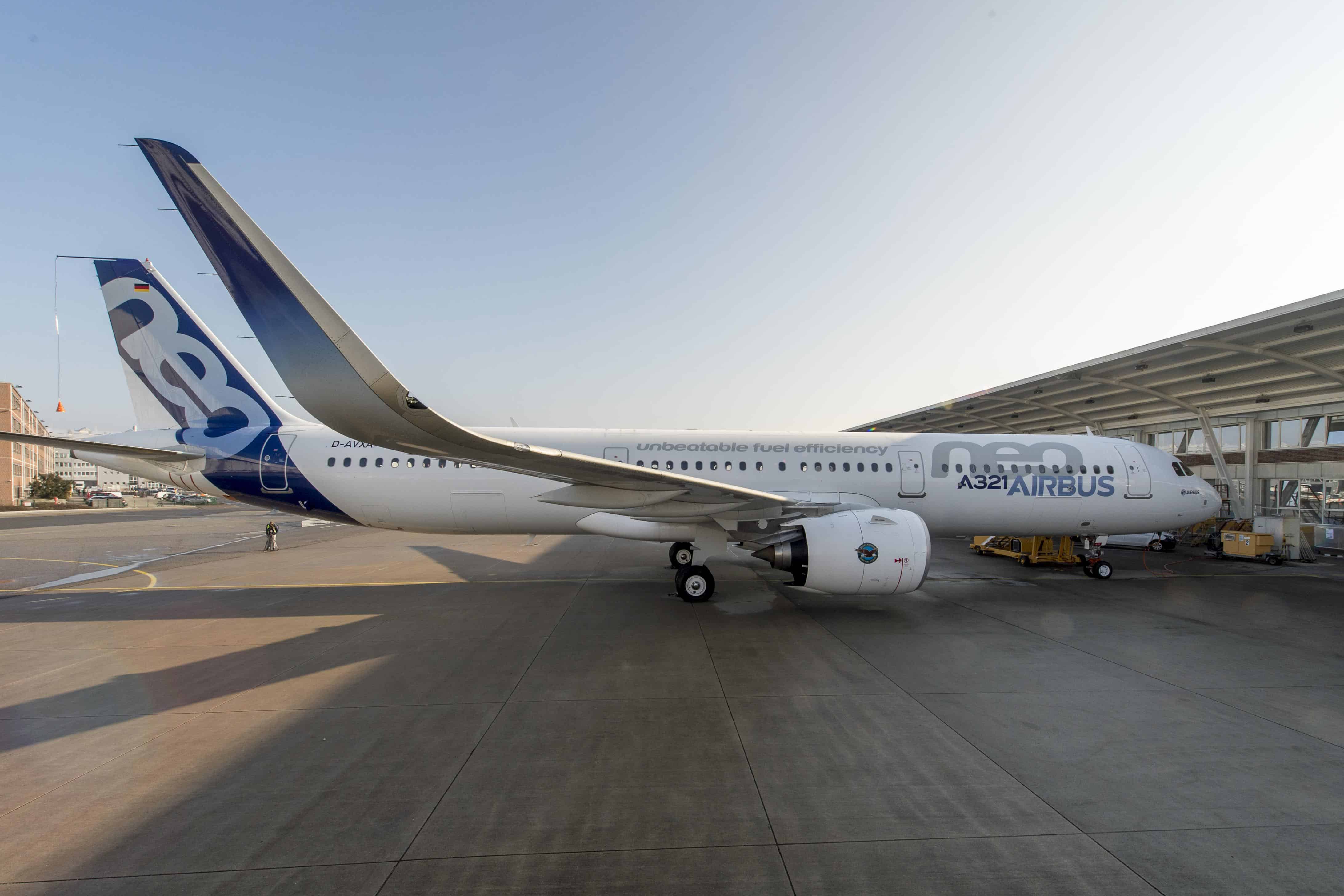
What made you choose an apprenticeship and why did you join Airbus?
I always knew I wanted to work in aerospace. In my final year at Lossiemouth High School, I applied for lots of aerospace engineering courses at university and even to the RAF as an Engineering Officer. As I was doing research on courses, I ‘googled’ Airbus, Boeing, and BAE Systems – the only three aircraft manufacturers I knew – and was really attracted to Airbus’ ‘Undergraduate Apprentice’ programme. The prospect of studying for a degree and getting work experience at the same time – learning and earning – really interested me.
What’s your typical day like?
I get to work for 8am and we start most days with a team meeting. The whole team gets together to talk through the day’s work and what we need to achieve – it’s a good opportunity to ask questions and share experiences. I normally try and take lunch with some of the other apprentices at 12pm, either on site in the staff restaurant or somewhere close by. Typically, the working day finishes by 4.30pm and I can then focus on my social life! I’ve also been able to travel to our factories in Germany and France with work and visit an airline in Portugal – a great experience..
When I was offered my apprenticeship, the Human Resources team put me in touch with two other new apprentices and helped us arrange a flat share in Bristol. I’m from Lossiemouth, in the north of Scotland and knew nothing about Bristol, and it really helped to live with other apprentices – we were all going through the same experiences and could help each other out. I now share a house with four friends from a mix of backgrounds – another apprentice at Airbus, a financial recruiter, and a gas engineer. It’s good to live with people from other careers because it means I don’t talk about my work all day long!
Tell us about a project you’ve been working on recently?
I’m currently working on the Bristol Eco-Flyer project – a two-seater electric aircraft which produces no carbon emissions. It’s designed, built and will make its first flight in Bristol. It will be the first time in decades that we will see a fully British designed and built aircraft flying in UK airspace. My role is ‘Lead Wing Design’ working to optimise the weight of the wing components to meet the tight weight restrictions. It has been great and a real opportunity to put my learning into practice. We are never short of advice when we need it – there are 4,000 experts to ask at Filton! At the end of each week, we have a team meeting with the Chief Engineer where we present our designs to him to make sure any errors are identified and we will be safe to fly.
Apart from your day-to-day role, what other projects have you been involved in?
Since starting the apprenticeship, I have worked on the A320 Sharklet design and repair teams; Wind Tunnel Operations and Design; Structures Testing; and the A400M CPD design and stress teams. Airbus is really good too at getting us involved in charity events and I took part a charity football match recently against Rolls-Royce to raise money. I also captain a five-a-side apprentices’ football team in the Airbus league. In our first year we came last; in our second year we were second from bottom; this year we are fourth from bottom – we are getting better!

What are the key things you’ve learned since joining?
Obviously my professional knowledge of aerospace engineering but also my knowledge of the engineering discipline – I had no appreciation of the diversity of engineering roles before I started here. Aside from that, I have also learned how to act professionally in the workplace – working in teams and understanding when to put fun to one side and when to knuckle down and get my work done. The discipline I’m learning in the workplace has been positive for my university studies as well as in my everyday working life.
Where do you see yourself - career-wise - in five years?
I see myself working as a design engineer in the A320 Sharklet team, building on my experience in wing part design. I’m also hoping to get my Incorporated Engineer (IEng) status. If this happens before my 21st birthday, I’ll become the UK’s youngest professionally registered Incorporated Engineer. After five years, I hope to have enough experience to hold ‘checker signatory’ status, allowing me to check and sign off on other people’s work. In five years, I’ll also hope to have qualified as a Chartered Engineer.
What’s your favourite thing about working for Airbus?
I love the fact that I get to work with aircraft every day. It is really satisfying to think that I get to design aircraft parts, see them being printed out on a 3D printer, fitted to an aircraft and then actually see them flying. It makes me feel really responsible for the work I do, and getting my work right.
What’s the one thing that will make young people want to work at Airbus from your perspective and why?
I doubt I would have found anywhere better than Airbus for the quality of training and support I get. The training has been progressive since day one and the end result, hopefully, will be a BEng (Hons) in Aerospace Engineering, professional registration as an Incorporated Engineer, and a job with one of the world’s leading companies. I’ve always felt there was someone I could turn to with questions and to seek advice, but I’m also given the space to develop by being set a task and allowed to get on and complete it.

What do your friends think about what you do?
They’re jealous – I’m the one buying the beers when I go home! Those who stayed in Lossiemouth wish they could have moved out of home. Those who went to university still need to find jobs when they finish. I’ve got a BEng (Hons) in Aerospace Engineering from University of the West of England and a great job to go with it!
What advice would you give to a candidate interested in joining Airbus?
When I was at school, no one really spoke about apprenticeships. The level of knowledge is getting much better. I go back to talk with students at my old school about why they should consider STEM careers and apprenticeships. There are some amazing opportunities at Airbus Group and other companies and it is important to keep your eyes open for the opportunities available. Once you spot an opportunity, seize the day and go for it – you never know where it will end up.
What is the funniest thing that has happened to you since you started working at Airbus?
Getting beat 65-8 at five-a-side football - after they had scored the first 20 goals, we decided to let them have the game! It was good team building in the face of adversity – we came off the pitch laughing and having had fun!




JLR teams with Allye Energy on portable battery storage
This illustrates the lengths required to operate electric vehicles in some circumstances. It is just as well few electric Range Rovers will go off...